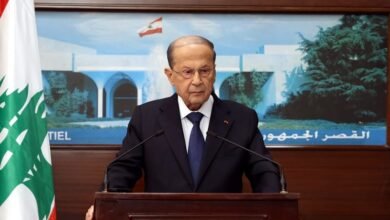US DECIDES TO REJOIN UNESCO AND PAY BACK DUES, TO COUNTER CHINESE INFLUENCE

U.N. cultural and scientific agency UNESCO announced Monday that the United States plans to rejoin — and pay more than $600 million in back dues — after a decade-long dispute sparked by the organization’s move to include Palestine as a member.
U.S. officials say the decision to return was motivated by concern that China is filling the gap left by the U.S. in UNESCO policymaking, notably in setting standards for artificial intelligence and technology education around the world.
U.S. Deputy Secretary of State for Management and Resources Richard Verma submitted a letter last week to UNESCO Director General Audrey Azoulay formalizing the plan to rejoin.
Applause rang out in the solemn UNESCO auditorium as Azoulay announced the plan to ambassadors at a special meeting Monday, and delegate after delegate stood up to welcome the news — and the new influx of money. The return of the U.S., once the agency’s biggest funder, is expected to face a vote by its 193 member states next month, according to a UNESCO diplomat.
The decision is a big financial boost to the United Nations Educational, Scientific and Cultural Organization, known for its World Heritage program as well as projects to fight climate change and teach girls to read.
The U.S. and Israel stopped funding UNESCO after it voted to include Palestine as a member state in 2011, and both countries lost their voting rights in 2013. The Trump administration decided in 2017 to withdraw from the agency altogether the following year, citing anti-Israel bias and management problems.
In his letter last week, Verma noted efforts by UNESCO toward management reform, and “decreasing politicized debate, especially on Middle East issues.” A delegation from Washington came to Paris last week to hand-deliver the letter, obtained by the AP.
Since her election in 2017, Azoulay has worked to address the reasons the U.S. left, through budget reforms and building consensus among Jordanian, Palestinian and Israeli diplomats around sensitive UNESCO resolutions.
The U.S. decision to come back “is the result of five years of work, during which we calmed tensions, notably on the Middle East, improved our response to contemporary challenges, resumed major initiatives on the ground and modernized the functioning of the organization,” Azoulay told The Associated Press.
She met with Democrats and Republicans in Washington to explain those efforts, according to a UNESCO diplomat. Thanks to those bipartisan negotiations, UNESCO diplomats expressed confidence that the U.S. decision to return is for the long term, regardless of who wins next year’s presidential election.–AP






